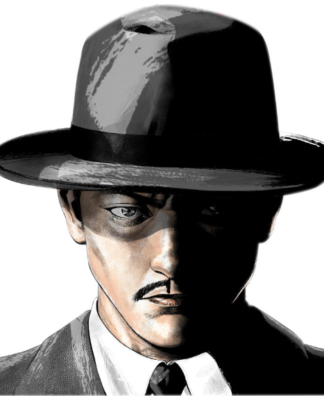DR. APOLONIO de Jesus, a member of the original Varsitarian batch of 1928, died last March 18. He was 98.
De Jesus died during his sleep after battling pneumonia for three weeks, according to his son, Vice-Rector for Academic Affairs Armando de Jesus.
Up to the time of his death, De Jesus was the longest living Varsitarian staffer, perhaps even the longest living Thomasian. He last visited his alma mater in December 2002 when he attended the 75th anniversary of the Varsitarian where he was feted by alumni of the paper and given a plaque of distinction for his lifetime achievement, longevity, exemplary fatherhood, and exemplary service to society.
Still sprightly and alert, Dr. De Jesus astounded the gathering by delivering a thunderous extemporaneous speech. “I am proud to be a Thomasian,” he declared. “But I am prouder still to be a Varsitarian staffer.”
Born in Sta. Maria, Bulacan on July 10, 1905, Apolonio de Jesus earned his pre-Medicine degree at the University of the Philippines. He would later take up his Medicine degree in the University. As a student, he became the asst. business manager along with Elizabeth Bowers of the Varsitarian under another Medicine student, Pablo Anido.
De Jesus thus became a pioneer of the country’s oldest and most prestigious Catholic campus paper. Aside from Anido, who would become a doctor like him, he became fast friends with Jose Villa Panganiban, generally acknowledged to be the founder and father of the Varsitarian.
Panganiban, who would later become a top UST academic, director of the National Language Institute, and author of the monumental Tesauro Ingles-Pilipino, was a working student and hotcake cook in the UST canteen when he lobbied with the Dominican authorities for the creation of a student paper.
With much reluctance, the Dominicans gave in to Panganiban’s request. A staff was formed with Anido as editor in chief and Panganiban as literary editor. On Jan. 26, 1928, the first issue of the Varsitarian came out.
Since then, the Varsitarian has produced not only top journalists and writers (Jose Burgos Jr, Jullie Yap Daza, Alfredo Saulo, Rogelio Sicat, Neal Cruz, Rina David, Cristina Pantoja-Hidalgo, Joe Guevarra, Cirilo Bautista, Eric Gamalinda), but also physicians (De Jesus, Vicente Rosales Sr), politicians (Arsenio Lacson, Juan Frivaldo, Francisco Tatad), religious and prelates (Archbishop Artemio Casas, Sister Delia Coronel, Fr. Rolando De la Rosa, O.P., Fr. Virgilio Ojoy, O.P., Fr. Albert Alejo, S.J., Fr. Gilbert Centina, O.S.A.), lawyers and jurists (Josefina Luna), artists (Danilo Dalena and Boy Togonon), executives (Globe’s Jones Campos and PLDT’s Jun Florencio), and National Artists (F. Sionil Jose, Daisy Hontiveros Avellana, and J. Elizalde Navarro).
Characteristic of Varsitarian alumni, De Jesus led a varied and checkered life.
When the Japanese overran the country during the Second World War, De Jesus joined and later led an underground guerilla movement based in the Angat area in Central Luzon. When the war ended, he met the remnant members of his guerilla regiment, not to map a new strategy against the Japanese, but to plan community projects.
Vice-Rector De Jesus, one of Apolonio de Jesus’ nine children, said his father was a strict but kind man. He was a disciplinarian who always urged and nudged his children to be faithful to their religious duties, the vice-rector said. And he never failed to provide for the needs of his children.
Even if he was sick and getting weaker by the day, De Jesus, according to his son, still had a lucid mind, struggling to converse with his grandchildren.
One of the fundamental tenets he learned from his father, the vice-rector said, is to work hard since success is not easily earned. Billy Joe I. Allardo

















